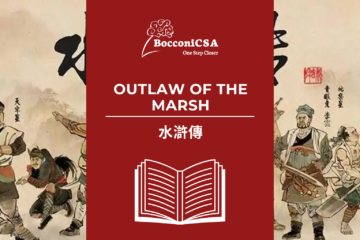[Author: Ni Jianhao]
As the US presidential election gradually closes in, and at the time of publishing may have already concluded, we explore the consequences of a US presidential race that has already captured the world’s attention. Will a return of Trump to the White House further destabilize the already frail US-China bilateral relations? Will Kamala Harris be capable of reinforcing the American presence in the Indo-Pacific and its Asian allies?
In this article, we discuss the ideas and speculations regarding the outcomes of the elections and how Beijing is reacting in the wake of potential instability in the following days.
On Monday, the 4th of November, the NPC (The National People’s Congress), the top legislative body in China, is expected to initiate a new round of capital injections into Chinese banks and initiate new swaps of debts between local governments to stabilize the economy. As China started a fiscal stimulus on September 24th to bolster the national economy and reach the yearly growth target, the news of no further stimulus may be disappointing for investors and foreign firms but may be a prudent policy decision to impose a floor under the Chinese economy in an attempt to mitigate further risks due to external factors.
However, China has been conspicuously absent in the official rhetoric of both candidates in the election. Trump has largely focused on the internal grievances of the American people (even the tariffs are discussed as a way to protect and reindustrialize American manufacturing), while Harris has tried to leverage the divisive rhetoric and the controversial proposals of the Republican candidate, like Project 2025. Nonetheless, neither candidate is expected to lead to a substantial improvement in bilateral relations with China, as the Biden-Harris administration has not removed most Trump-era tariffs and has instead imposed new ones directed at China’s green energy sector, while Trump is expected to impose a new round of sanctions against China.
To sum it up, neither candidate is expected to reduce the tech curbs to limit China’s technological and scientific progress, and further academic limitations are to be expected.
From a security perspective, however, there is a general sentiment that a Trump administration would be less committed to the present security framework involving American allies, as Trump has repeatedly talked about peace in Ukraine and a presumed “price” that Taiwan is not paying for its security
.
But instead of labeling Trump as an “isolationist,” it would be more accurate to say that Trump is concerned about the cost burden that falls on the US instead of questioning the security framework itself. J.D. Vance, running partner of former President Trump, made it very clear that Europe would have to step up its contribution to its own security regarding the conflict in Ukraine, sparking fear about a lack of commitment from European partners. Would a Harris presidency be a prospect of stability in American foreign affairs?
Probably, as she is expected to largely inherit the current administration’s attitude and policies regarding China, Europe, and the Middle East. From Beijing’s standpoint, though, the geopolitical conflicts that are presently deteriorating arguably the world’s most important bilateral relationship will largely remain unchanged. But as Trump’s return to the White House begins to materialize, China will start to prepare measures to weather the coming storm of renewed tensions that risk further fragmenting supply chains and global trade.
04/11/2024



0 Comments